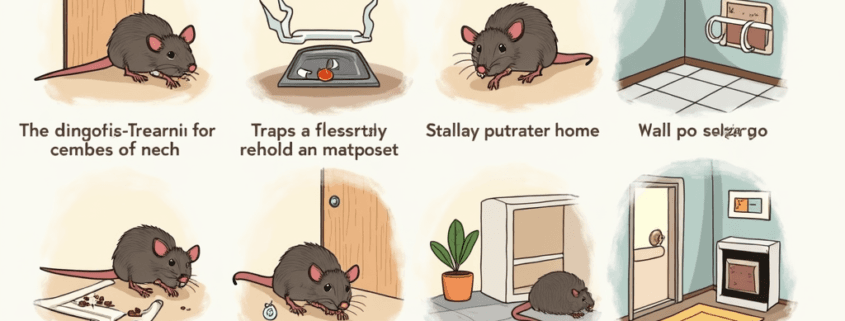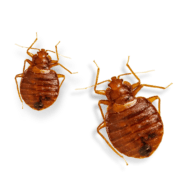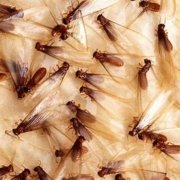Mice Control Strategies: Effective DIY and Professional Methods
Mice control strategies are essential for homeowners facing the challenges posed by rodent infestations. These small but persistent pests can rapidly multiply, leading to significant health risks and property damage if left unchecked. Effective rodent control involves a combination of pest control techniques, including DIY rodent prevention and professional extermination services. By understanding the habits of these creatures, individuals can implement home infestation solutions that are both practical and efficient. Whether opting for self-managed methods or enlisting the help of a professional exterminator, timely action is crucial to safeguard your living environment from these unwanted guests.
When discussing methods to manage rodent populations, the terminology often expands beyond just “mice control strategies.” Homeowners may refer to this issue as rodent management or pest mitigation techniques, highlighting the importance of addressing these common household nuisances. Effective rodent management is vital for maintaining a healthy living space, as these pests can pose serious threats to both health and property. Solutions may involve proactive measures such as sealing entry points and proper food storage, as well as reactive strategies that include traps and professional pest control services. By exploring various approaches, individuals can find comprehensive solutions to combat rodent issues in their homes.
Understanding Mice Control Strategies
Mice control strategies are critical for homeowners facing the threat of rodent infestations. Effective approaches include both preventive measures and active control tactics that work together to minimize the risk of mice entering your living space. One of the essential strategies is to secure potential entry points. This involves sealing cracks and gaps in walls, around pipes, and at the base of doors. Mice can squeeze through openings as small as a quarter of an inch, so a thorough inspection is vital. Additionally, keeping the outdoor environment tidy by removing debris and clutter can significantly reduce nesting sites.
Another key aspect of mice control strategies is the use of traps and baiting systems. Snap traps and live traps can be employed in areas where evidence of mice has been spotted, such as droppings or gnaw marks. When using bait, it is crucial to choose attractive options like peanut butter or sunflower seeds. Homeowners should regularly monitor these traps and replace bait as necessary to ensure effectiveness. Combining these methods with proper sanitation practices, such as storing food in airtight containers and promptly cleaning spills, can create a comprehensive defense against mice.
The Importance of Professional Rodent Control
While DIY methods can be effective for minor infestations, the importance of professional rodent control cannot be overstated. Professional exterminators possess specialized training and tools that allow them to address rodent issues more effectively than typical home remedies. They can identify the extent of the infestation and tailor their approach accordingly, ensuring that all rodents are eliminated and that the likelihood of future infestations is minimized. For instance, professionals have access to advanced baiting techniques and traps that are not available in retail stores.
Moreover, professional rodent control services offer long-term solutions. These experts not only exterminate existing mice but also provide valuable advice on prevention measures. They can help homeowners understand how to eliminate attractants and secure entry points, significantly reducing the risk of re-infestation. This holistic approach ensures that the pest control techniques implemented are sustainable, protecting your home from future rodent problems.
DIY Rodent Prevention Techniques
DIY rodent prevention techniques are essential for maintaining a rodent-free home. One of the most effective methods is to maintain cleanliness and proper food storage. This means keeping food sealed in airtight containers and promptly cleaning up any spills or crumbs. Additionally, regular garbage disposal and keeping trash cans tightly sealed can help eliminate food sources that attract rodents. Implementing these simple practices can significantly reduce the chances of an infestation.
Another crucial DIY technique is the sealing of entry points. Rodents are notorious for finding small gaps in structures to gain access to homes. Inspecting the exterior of your house for holes or cracks and sealing them with materials like caulk or steel wool can prevent mice from entering. Furthermore, installing door sweeps and repairing screens can also deter these pests. By combining cleanliness with strategic sealing, homeowners can create an effective barrier against rodent invasions.
Recognizing Signs of Rodent Infestations
Recognizing the signs of rodent infestations is crucial for timely intervention and effective control. Common indicators include the presence of droppings, which are often found near food sources or nesting areas. Additionally, gnaw marks on furniture, walls, or food packaging are clear signs that rodents have invaded your space. Homeowners should also listen for scratching or scurrying sounds, particularly at night when mice are most active. Early detection can lead to quicker action, preventing a minor problem from escalating into a full-blown infestation.
In addition to physical signs, homeowners should be aware of unpleasant odors that can indicate a rodent problem. The smell of urine or the stench of decaying rodents can become quite pronounced in areas where mice nest. If you suspect an infestation based on these signs, it’s essential to take action immediately. Addressing the issue promptly through DIY methods or by contacting a professional exterminator can help mitigate the risks associated with rodent infestations, such as disease transmission and property damage.
Choosing Between DIY and Professional Extermination
When faced with a rodent problem, homeowners often wonder whether to tackle the issue themselves or hire a professional exterminator. DIY methods can be effective for small infestations, allowing for immediate action without incurring significant costs. Techniques such as setting traps, sealing entry points, and maintaining cleanliness can help manage minor issues effectively. However, these methods require diligence and may not suffice in the case of larger infestations or persistent rodent problems.
On the other hand, professional extermination offers a comprehensive approach to rodent control. Pest control technicians have the experience and tools necessary to address severe infestations and prevent future occurrences. They can assess the situation, identify the type of rodent, and implement targeted treatments that are often more effective than standard DIY methods. Ultimately, the choice between DIY and professional extermination depends on the severity of the infestation and the homeowner’s comfort level with implementing control measures.
Long-Term Rodent Prevention Strategies
Long-term rodent prevention strategies are essential for maintaining a safe and healthy home environment. One of the most effective ways to prevent future infestations is through regular home maintenance. This includes inspecting the foundation, walls, and roof for any potential entry points that may have developed over time. Sealing these gaps with appropriate materials can significantly reduce the chances of mice entering your home. Additionally, keeping the yard tidy by removing debris and ensuring that vegetation is well-trimmed can deter rodents from nesting nearby.
Another critical aspect of long-term prevention is managing food sources. Homeowners should store food in airtight containers and promptly clean kitchens and dining areas after meals. This practice minimizes attractants that could draw rodents into the home. Furthermore, ensuring that outdoor food sources, such as pet bowls and compost piles, are managed can also reduce the likelihood of attracting rodents. By implementing these long-term strategies, homeowners can create an inhospitable environment for mice and other pests.
The Role of Sanitation in Rodent Control
Sanitation plays a vital role in rodent control, as it directly impacts the attractiveness of your home to pests. By maintaining a clean living environment, homeowners can significantly reduce the risk of attracting rodents. This includes regularly cleaning up spills, promptly disposing of food waste, and ensuring that trash cans are securely closed. A tidy home is less likely to provide food sources or nesting materials for mice, making it a less appealing target for infestations.
Moreover, sanitation extends to outdoor spaces as well. Keeping yards clean and free of debris can prevent rodents from finding shelter near your home. Regularly mowing the lawn and trimming overgrown shrubs can discourage nesting. Additionally, removing clutter from garages and sheds can reduce potential hiding spots for rodents. By prioritizing sanitation both indoors and outdoors, homeowners can effectively minimize the risk of rodent problems.
Understanding the Risks of Rodent Infestations
Understanding the risks associated with rodent infestations is crucial for homeowners. Rodents are known carriers of various diseases, including hantavirus, leptospirosis, and salmonella, which can pose significant health threats to humans. These pests can contaminate food and surfaces with their droppings and urine, leading to potential health hazards. The presence of rodents can create an unsafe living environment, making it essential to address infestations promptly.
In addition to health risks, rodents can cause extensive property damage. Their gnawing habits can compromise the integrity of electrical wiring, increasing the risk of fire hazards. They can also damage insulation, walls, and furniture, leading to costly repairs. Understanding these risks underscores the importance of early intervention when signs of rodent activity are detected. By taking proactive measures, such as contacting a professional exterminator or implementing effective DIY strategies, homeowners can mitigate both health and property risks associated with rodent infestations.
The Benefits of Timely Rodent Control
The benefits of timely rodent control cannot be overstated. Addressing rodent infestations at the first signs can save homeowners from significant health risks and property damage in the long run. Early intervention helps prevent the rapid reproduction of mice, which can lead to larger infestations that are more challenging to manage. By taking action promptly, homeowners can reduce the overall cost of rodent control, as well as the stress associated with dealing with an extensive infestation.
Furthermore, timely rodent control can enhance the overall comfort and safety of your home. Knowing that your living space is free from pests can provide peace of mind for you and your family. Professional exterminators can not only eliminate existing rodent populations but also provide valuable advice on preventive measures. This proactive approach ensures that your home remains a safe and healthy environment, free from the worries associated with rodent infestations.
Frequently Asked Questions
What are the most effective mice control strategies for homeowners?
Effective mice control strategies for homeowners include a combination of DIY rodent prevention methods and professional extermination services. Begin by sealing entry points, such as cracks and holes, to prevent mice from entering your home. Use traps and bait stations strategically placed in areas with signs of rodent activity. Additionally, maintaining cleanliness and proper food storage can significantly deter mice. For severe infestations, hiring a professional exterminator is recommended as they utilize advanced techniques for comprehensive rodent control.
How can DIY rodent prevention techniques help control mice in my home?
DIY rodent prevention techniques can effectively control mice by addressing the immediate issues that attract them. These methods include sealing gaps and cracks in your home’s exterior, setting traps in areas of activity, and ensuring food is stored in airtight containers. Regular cleaning to eliminate food debris and maintaining a clutter-free environment are also essential. While these strategies can manage minor infestations, larger problems may necessitate professional pest control services.
When should I consider hiring a professional exterminator for mice control?
You should consider hiring a professional exterminator for mice control if you notice signs of a large infestation, such as abundant droppings, frequent rodent sightings, or substantial property damage. If DIY methods have failed to resolve the issue, or if there are safety concerns due to gnawing on electrical wires, seeking professional assistance is crucial. Professionals have the expertise and tools to effectively assess and eliminate rodent problems, ensuring thorough pest control.
What are common signs of a mice infestation that homeowners should look for?
Common signs of a mice infestation include droppings, gnaw marks on food packaging or furniture, and scratching noises in walls or ceilings. You may also notice greasy rub marks along walls or the presence of nests made from shredded paper or fabric. Early detection of these signs is vital for effective rodent control, allowing homeowners to take immediate action before the infestation escalates.
What should I look for when choosing a pest control technician for mice control?
When choosing a pest control technician for mice control, ensure they are properly licensed and certified, indicating they meet industry standards. Consider their experience in rodent control, as seasoned professionals will have the skills to handle various infestation scenarios. Customer reviews and testimonials can provide insights into their reliability. Additionally, inquire about service guarantees and follow-up plans to ensure effective and lasting rodent control.
How do rodent control strategies differ between mice and rats?
Rodent control strategies for mice and rats differ primarily in their behavior and nesting habits. Mice tend to nest in higher areas like attics and walls, while rats are often found in lower spaces like basements and sewers. Control strategies should focus on the specific habits of each species, such as using snap traps for mice and larger bait stations for rats. Additionally, sealing entry points specific to each rodent type is crucial for effective pest control.
What are safe pest control techniques for families and pets during mice control?
Safe pest control techniques for families and pets include using traps instead of poisons, ensuring that all traps are placed out of reach of children and animals. Opt for non-toxic bait options and consider natural repellents such as peppermint oil. During professional extermination, communicate with the technician about safety protocols, and follow any recommendations to keep your living space safe during and after the treatment.
Are there any environmental concerns with traditional pest control techniques for mice?
Yes, traditional pest control techniques for mice, especially those involving chemical pesticides, can pose environmental concerns. These chemicals may affect non-target organisms, pollute water sources, and harm beneficial wildlife. Homeowners seeking environmentally friendly options should consider integrated pest management (IPM) techniques, which focus on prevention, non-toxic baits, and the careful use of pesticides only when necessary, minimizing ecological impact.
How quickly can I expect results from mice control strategies?
The speed of results from mice control strategies varies based on the severity of the infestation and the methods used. DIY methods may show results within a few days to weeks, particularly if entry points are sealed and traps are effectively placed. In contrast, professional extermination can yield faster results, often resolving significant infestations within a single treatment or follow-up session, depending on the extent of the problem.
What preventative measures can I take to avoid future mice infestations?
To avoid future mice infestations, implement comprehensive preventative measures such as regularly inspecting and sealing entry points, maintaining cleanliness, and properly storing food. Keep clutter to a minimum, regularly dispose of trash, and monitor for signs of rodent activity. Additionally, consider seasonal inspections by a professional exterminator to identify potential vulnerabilities in your home before infestations occur.
| Key Points | Details |
|---|---|
| Understanding Rodent Behavior | Rodents are attracted to homes for food, water, and shelter. They are nocturnal and adapt easily to various environments. |
| Risks of Infestation | Rodents can spread diseases, contaminate food, and cause property damage, highlighting the need for early intervention. |
| DIY Control Methods | Effective methods include trapping, sealing entry points, and proper food storage to prevent infestations. |
| When to Call Professionals | For large infestations, significant property damage, or when DIY methods fail, professional pest control is necessary. |
| Choosing a Pest Control Technician | Look for licensed, experienced technicians with good reviews and service guarantees to ensure effective rodent control. |
Summary
Mice Control Strategies are vital in maintaining a safe and healthy living environment. Understanding rodent behavior and the risks associated with their infestations allows homeowners to take proactive measures. These strategies include a combination of DIY methods for immediate action, as well as recognizing when to call in professional pest control services for more severe cases. By choosing the right pest control technician, one can ensure effective eradication and prevention of future infestations, safeguarding both health and property.












Leave a Reply
Want to join the discussion?Feel free to contribute!